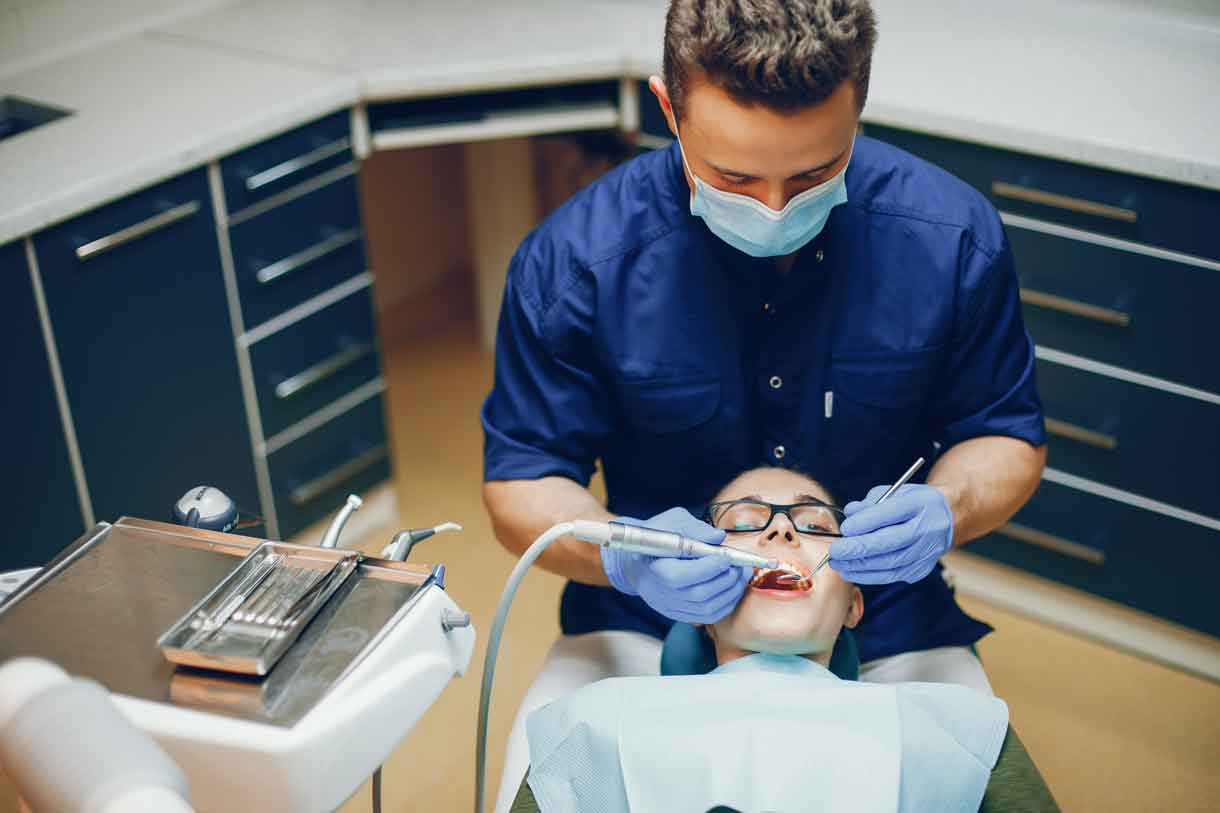Why should you see a dentist if you don’t sleep well?
Good question, I mean, what has sleep got to do with dentists or your teeth? Strangely enough, quite a lot actually.
First of all, the dentist’s role has changed, we’ve increased overall health in many communities until decay is not only unacceptable, but much less often found. We’ve improved the treatment and management of gum disease and even started to put back lost teeth using artificial roots as implants. While we’ve still got a long way to go, (and technology is improving almost daily) our offices are becoming more health and wellness oriented – we see patients before they get sick, doctors see them afterwards.
The primary reason to ask your dentist is that it is now that, just as for cancer and jaw joint problems, it is the standard of practice for dentists to screen their patients for the possibility of Sleep Disordered Breathing, this includes screening for Obstructive Sleep Apnea and Snoring.
One of the areas of improvements has been in the resolution of inflammation which may have beneficial effects on cardio-vascular health, we recognize the value of fighting the oxidative process which comes with it.
Many of also recognise that we see this in Obstructive Sleep Apnea (OSA), the second most common sleep disorder.

Just like our association and the government looked to us for support with their anti-smoking campaigns, they may also look to us in order, to help in both insomnia and OSA management. While the dental profession cannot diagnose sleep disorders, they can screen and recognize familiarity in order to triage and help the doctor.
So here we have it – the benefits that a dentist can have in a failing medical system, which is sadly extremely busy fixing disease and illness, which alas were often avoidable or preventable.
But wait, this is only the beginning. Let’s look just at OSA and airway disturbances in general. When present in children they can affect the growth of the face and jaws. These anatomical changes can worsen airway problems in adults (which the children eventually become). We could save a lot of unnecessary orthodontic treatment if the jaws developed properly.
I’m sorry if there are any orthodontists reading this but there are still some practicing individuals who still believe that people have too many teeth for their mouth. Actually, it might be more accurate to say that their patient’s jaws are often not adequately developed for the number of teeth the patient has. If nothing else, this will stop the hideous practice (which is improving) of whole sale removal of 4 teeth and fixed braces to retract everything (often at the expense of the profile) – its time to recognize our mistakes of the past, apologize and move on. The orthodontist, or dentist performing orthodontics (I’ve just lost the remainder of orthodontists now) have a role to play in developing the jaws (not squeezing the teeth in to small jaws so that the individual has to wear retainers for the rest of their lives.

Neither incidentally is a watch and wait, approach usually the best way to go. Jaw and face growth occurs in the very early years of the child’s life and correction would be better suited to hat period of jaw growth, not the convenience of some of the orthodontic factories gluing railroad tracks on to teenagers as a rite of passage. Forgive my cynicism, but some may consider this approach as simply being easier for the orthodontist. We all have to remember that ours is not a mechanical profession, but a “patient centred” biological one.
In actual fact we need more “jaw orthopaedic orthodontists” to align jaws, rather than traditional “orthodontists. (‘Ortho’ – straight, ‘dont’ – teeth – ‘ists’ – providers.)
Altered jaw growth and indeed poor sleep also decrease function and lower pain threshold making jaw joint problems more likely. Such jaw joint or temporomandibular joint – dysfunction is often referred to as TMD. I knew a professor of dentistry in Plymouth, UK who was convinced that TMD was a ‘figment of his patient’s imagination’. While giving a talk at which he knew I was present, he referred to TMD as “The American Disease” considering it to have been “invented” there.

What else? Well., in the child, along with developmental interference and damage, apart from these obvious problems associated with these airway disturbances, we have bed wetting, behavioural problems, failure to thrive and smaller size (growth hormone is secreted at night), potential obesity (due to altered hormonal balance driving hunger and satiety), decreased intellectual advancement (reduced oxygen to the brain) and quite possibly the beginning of other organ and system disease.
Tooth grinding, while still shrouded in controversy, is in my opinion, may often still be related to airway issues. It is certainly worth reviewing the airway on a child who grinds his or her teeth. Indeed, it is worth checking any child who snores (not normal) or is witnessed to hold their breath (not normal) or indeed one who ‘mouth breathes’ during the day (or night) and habitually sits with their lips apart.
For adults, beyond the possibility driving the bed partner to distraction, snoring and obstructive sleep apnea are associated with a statistically shorter life span (as is chronic insomnia), cardiovascular disease and diabetes. On top of this they too may grind their teeth. Unfortunately many dentists will place “grinding guards” (or night, or bruxing guards) to protect the teeth from wear – unaware that this may aggravate the very disease issues that are often associated with the grinding (snoring and obstructive sleep apnea).
Worn teeth lead to unattractive and prematurely aged smiles.
They also lead to worn crowns and broken dental work, sensitive teeth and cracks and gum line notching or abfraction. Please note that whoever wrote this somewhat unconvinced review in wiki obviously hasn’t studied Dental Sleep Medicine or TMD at any depth. (Forgive me, author)
What about the connection between OSA and anxiety and depression, I see all these things recently discovered” by the many (expensive) courses being made available. (Then people wonder why everything costs a lot at the dentist’s office – OK, I’ll accept that it may well be that it’s only part of the reason … ).
What about OSA’s association with erectile dysfunction?
So, what can the dentist do about OSA? The dentist can’t run tests and diagnose but they can screen and work with a physician to get a diagnosis from which they may be able to help with various appliances and approaches. Using their teams, especially the hygienist to screen and assist in management (not treatment) is an effective way of providing a very worth while service.
So whether its snoring, OSA, orthodontic problems, TMD, worn teeth, cosmetic issues, failing dental work, etc. Your dentist should be a good place to start. If your dentist wants to know more, he or she can drop us a line to join our ongoing study course. If they are not, or don’t see any relevance of airway or sleep issues to your oral or general health? Well, that’s up to you.
CLICK BELOW TO RECEIVE YOUR FREE “BETTER SLEEP” GUIDE
Good sleep is crucial to good health and longevity.
Dr. Stephen Bray 2019
…..
CLICK BELOW TO SEE WHY AND HOW TO USE ANTI-OXIDANTS



